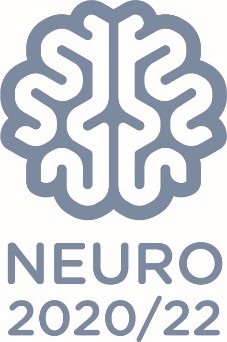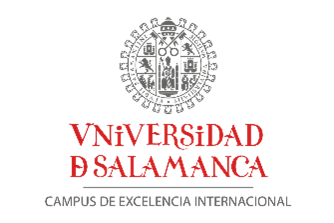
The Global Summit on Neurodegenerative Diseases NEURO 2020/2022 will take place in the city of Salamanca from June 21 to 24, 2022, under the presidency of H.M. Queen Sofia. This Summit is held within the framework of the event of exceptional interest, "Neurodegenerative Diseases 2020. International Year of Neuro2020 Research and Innovation". That event aims to promote research into neurodegenerative diseases and raise public awareness of the social consequences of these pathologies.
This meeting is annually celebrated under the denomination of International Congress on Innovation and Research in Neurodegenerative Diseases (CiiiEN) and focuses on major research advances in neurodegenerative disorders, particularly Alzheimer's, Parkinson, ALS, and Huntington's diseases. The Congress has been organized since 2013 by the Queen Sofia Foundation, the Center of Research in Neurological Diseases (CIEN) and the Center for Networked Biomedical Research in Neurodegenerative Diseases (CIBERNED). It offers a forum to exchange and discuss a range of areas of interest related to basic, clinical and translational aspects of the research on neurodegenerative diseases. The Summit will focus on scientific research by the CIEN Foundation and CIBERNED. Researchers from several countries will attend this Global Summit. Noteworthy is the participation of 2013 Nobel Prize winner in Medicine, Thomas C. Sudhof (Stanford University, California, USA), among other prestigious researchers.
The University of Salamanca will lend its facilities and services for the proper development of the scientific sessions.The GLOBAL SUMMIT Neuro2020/22 will also collaborate with the City Council of Salamanca, which will provide some resources to the cultural activities associated with the scientific program.
We look forward to welcoming you to Salamanca.



Thomas Sudhof , Stanford University, CA
2013 Nobel Laureate in Physiology or Medicine
"Towards an understanding of Alzheimer’s disease as a synaptic disorder"


Orla Hardiman , Trinity College, Dublin
"The Pathway to Precision Medicine in Amyotrophic Lateral Sclerosis"
Leonard Van den Berg , Universiteit Utrecht
"The road to more effective treatment for amyotrophic lateral sclerosis"
Lu Chen, Stanford University, CA
"Retinoic acid receptor-alpha signaling in neuropathic pain"


Rafael Fernández Chacón , Instituto de Biomedicina de Sevilla-IBIS, CIBERNED
"Homeostatic reprograming of neurons upon presynaptic dysfunction"
Sonia Alonso, Biodonostia Research Institute, CIBERNED
"Intrinsic muscle dysfunction in Amyotrophic Lateral Sclerosis"
Juan Pedro Bolaños, Instituto de Biología Funcional y Genómica. Universidad de Salamanca, CIBERFES
"Metabolic shapes of brain cells and functional consequences"

Oscar Fernández-Capetillo, Centro Nacional de Investigaciones Oncológicas-CNIO
"Mechanisms, mouse models and drug development: A cancer researchers´approach to ALS"
Angeles Almeida, Instituto de Investigación Biomédica de Salamanca-IBSAL
"The p53 Arg72Pro polymorphism determines cognitive decline progression in AD"
José J. Lucas, Centro de Biología Molecular “Severo Ochoa”, CIBERNED
"Altered RNA processing in Huntington’s disease"


Eduardo Tolosa, Hospital Clínic-IDIBAPS, CIBERNED
"Disease modification in early Parkinson disease"
David Sulzer, Columbia University, New York
"Autoimmunity in Parkinson’s Disease"
Werner Poewe, Universität Innsbruk
"Diagnosing Parkinson's Disease- from the street to the Bench"


José López Barneo, Instituto de Biomedicina de Sevilla-IBIS, CIBERNED
"Mitochondrial dysfunction and compartmentalized alterations of nigrostriatal dopaminergic neurons in Parkinson disease"
Marcelo Mendonça, Fundação Champalimaud, Lisboa
"Movement and reward modulation in Substantia Nigra pars compacta dopaminergic neurons"
Jaime Kulisevsky, Institut de Recerca Hospital de la Santa Creu i Sant Pau, CIBERNED
"Treatment of Cognitive and Neuropsychiatric impairment in Parkinson’s disease: An unmet need and a methodological challenge"


Inga Zerr, DZNE, Georg August Universität Göttingen
"Cerebrospinal fluid and blood based biomarker- recent advances in neurodegenerative diseases"
Teresa Iglesias, Instituto de Investigaciones Biomédicas, “Alberto Sols” CSIC-UAM, CIBERNED
"Molecular targets for Ventriculomegaly and Neurodegeneration"
Joe Paton, Champalimaud Foundation, Lisbon
"Action suppression reveals opponent parallel control of behavior via basal ganglia circuits"
Nozha Borjini, Instituto de Biomedicina de Sevilla-IBIS, CIBERNED (poster #2)
"Microglia in the presynaptic dysfunction and neurodegeneration in mice lacking the synaptic co-chaperone CSPα/DNAJC5"
José Jiménez-Villegas, Instituto de Investigaciones Biomédicas "Alberto Sols" CSIC-UAM, CIBERNED (poster #20)
"Redox, mitochondrial and NRF2 imbalance are present in C9orf72-related amyotrophic lateral sclerosis"
Letizia Moreno-García, Universidad de Zaragoza, CIBERNED (poster #10)
"Circular RNAs as blood-based biomarkers of ALS"
José Luis Lanciego, CIMA-Universidad de Navarra, CIBERNED (poster #21)
"Blaming neuromelanin for Parkinson's disease: time-dependent tyrosinase overexpression drives endogenous synucleinopathy in nonhuman primates"
Marta Garo-Pascual, Fundación CIEN (poster #35)
"A hippocampal-anterior thalamic circuit associated with learning rate in ageing"
Iván Burgueño, Fundación CIEN-Fundación ACS (poster #39)
"Neuropathological variability in Alzheimer’s disease. in search of distinct phenotypes of tau pathology"
Montse Solé, Institut de Recerca Vall d’Hebron-UAB, CIBERNED (poster 41)
"FAIM-L as a modulator of Tau pathology in Alzheimer's disease and other tauopathies"
Inmaculada Cuchillo-Ibáñez, Instituto de Neurociencias, UMH-CSIC, CBERNED (poster #60)
"CSF Apolipoprotein E characterization in Alzheimer’s disease"


Michel Goedert, MRC Laboratory of Molecular Biology, Cambridge
"Cryo-EM structures of amyloid filaments from human brain"
Kenneth S. Kosik, University of California at Santa Barbara
"A Tangle of Tau Pathways Operate within Cellular Systems"
Luc Buée, Inserm, CHR, Université de Lille
"Tau therapeutic strategies"


George Perry, University of Texas at San Antonio
"In search of a cure for Alzheimer disease"
Marta Pascual, Universitat de Barcelona, CIBERNED
"J20/VLW mice as a novel model of cognitive resilience to Alzheimer’s disease"
Bryan Strange, Fundación CIEN
"Superaging in Vallecas: Resistance to age-related memory decline"


Bruce Miller, University of California at San Francisco
"Frontotemporal Dementia: Diagnosis to Treatment"
Raquel Sánchez-Valle, Hospital Clinic de Barcelona, IDIBAPS
"Autosomal dominantly inherited dementias: from genetic counselling to early intervention"
Juan Domingo Gispert López, Barcelonabeta Brain Research Center (BBRC)
"Early pathophysiological alterations in Alzheimer's disease: insights from the ALFA cohort"

Julia Terreros Roncal, Young Investigator Award Centro de Biología Molecular "Severo Ochoa" CSIC-UAM, CIBERNED
"Impact of neurodegenerative diseases on human adult hippocampal neurogenesis"
Alberto Rábano, Fundación CIEN
"Clinicopathological heterogeneity in Alzheimer’s disease: lessons from the Vallecas Alzheimer’s Study"
Pascual Sánchez-Juan, Fundación CIEN, CIBERNED
"Plasma biomarkers in the Vallecas study. Bridging the gap on the road to the clinic"


Isabel Fariñas, Universitat de València, CIBERNED
"Immune vigilance of adult neural stem cells"
Angel Cedazo-Mínguez, Karolinska Institute
"Danger-associated responses in Alzheimer’s disease brain: Alarmins and Chaperons"
María Llorens-Martín, Centro de Biología Molecular “Severo Ochoa”- CSIC-UAM, CIBERNED
"Adult hippocampal neurogenesis and neurodegenerative diseases"

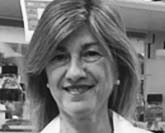
Institute of Biomedical Research Institute of Salamanca (IBSAL)
Instituto de Biología Funcional y Genómica (IBFG)
Universidad de Salamanca-CSIC
Ángeles Almeida Parra is deputy director of the Biomedical Research Institute of Salamanca (IBSAL) and Leader of the Molecular Neurobiology group. Our laboratory is interested in the study of molecular mechanisms that regulate neuronal death in stroke and neurodegenerative processes, including Alzheimer's disease (AD). Specifically, our scientific interest focuses on the role of tumor suppressor proteins, such as Cdh1 and p53, in the balance between neurodegeneration and neurorepair processes after an acute (stroke) or chronic (AD) brain damage. We are also interested in the mechanisms involved in the coordination between cell cycle and neuronal differentiation and death in the adult and developing brain. Both lines connect directly with the third line of the laboratory focused on the identification of new biomarkers of the functional outcome of stroke and AD patients. We have identified the interaction of p53 with the mitochondria as a central signaling pathway involved in neuronal apoptosis. Moreover, the human-specific polymorphism Arg72Pro p53 regulates the proapoptotic activity of the protein and conditions the functional outcome of stroke and AD patients.

Instituto de investigación Biodonostia
CIBERNED
Sonia Alonso-Martín: Group Leader of “Muscle Stem Cells & Regenerative Medicine” Lab within the Neuromuscular Diseases Group (Neurosciences Area) at BIODONOSTIA HRI (Donostia/San Sebastián, Spain). Research Fellow – Gipuzkoa Fellows Program for Talent Attraction and Retention.
Sonia Alonso-Martin is a highly qualified scientist, with an outstanding background in Myology, Mouse Molecular Genetics and Gene Regulation, and broad knowledge in Transcriptomics and Stem Cell Biology.
She is a renowned researcher in the skeletal muscle stem cell field, in which she contributed with high impact outcomes, including relevant international collaborations. She is author of 24 research papers and more than 50 scientific communications.
After completing a successful PhD in Madrid (CIB-CSIC) on ESC manipulation to generate new animal models for platelet-associated diseases, pioneer in her institution, she moved to France for a post-doctorate in F. Relaix lab (Paris & Créteil).
Remarkably, during her post-doctoral research works, she performed a stem cell ontogeny, from development to aged mice, identifying molecular pathways involved in the emergence of postnatal muscle stem cells in vertebrates, as well as the genetic changes associated with the stemness capacity of these cells. Back in Spain in 2016, she joined Pura Muñoz´ lab (CNIC-Madrid and UPF-Barcelona), where she focused on stem cell heterogeneity and aging, successfully publishing as first author in prestigious Nature Cell Biology journal.
In 2019, she has been awarded the “Gipuzkoa Fellows Program for Talent Attraction and Retention” which allowed her to start her own research group within the Neurosciences Area at Biodonostia HRI. Relying on her expertise in muscle biology, her group is unravelling the complexity of muscle dystrophies and motor neuron disorders, especially ALS, developing a total innovative approach for a better understanding of the different neurodegenerative diseases, including sarcopenia due to disuse or aging. She has a patent already licensed for ALS therapeutical approaches. Of note, she is Guess Editor for a 2022 Special Issue in The Journal of Personalized Medicine focused on Precision Medicine applied to Neuromuscular Disorders.
She is member of CIBERNED, the Network Center for Biomedical Research in Neurodegenerative Diseases; she is also member of the subgroup RIS3_Regenerative Medicine & Advanced Therapies (Health Dept., Basque Government); she is Review Editor for Frontiers in Cell and Developmental Biology and serves as reviewer for different scientific journals. Moreover, she is scientific evaluator and/or advisor for different committees and institutions such as FWO (Research Foundation – Flanders) or LifeArc (British Medical Research Charity) and the Spanish National Research Agency (AEI).
Finally, in Nov-2019 she co-founded MIAKER Developments S.L., a startup for clinical and research technology, as CRO, IP development, and drug screening, where she is currently R&D Director and Secretary of the Board of Directors.
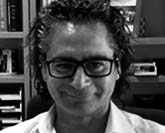
Instituto de Biología Funcional y Genómica (IBFG)
Universidad de Salamanca-CSIC
Juan Pedro Bolaños is Professor of Biochemistry and Molecular Biology at the University of Salamanca. His research activity has focused primarily on deciphering the molecular mechanisms by which the central nervous system manages the energy necessary for neuronal function and its impact on organismal behavior. Amongst his main contributions stands out the characterization of two different metabolic programs in neurons and astrocytes. This contribution may have changed our current view on the metabolic cooperation between neural cells and has resulted in the need to reformulate basic concepts of brain bioenergetics. For instance, his group identified that the structural organization of the mitochondrial respiratory chain is intrinsically different in neurons and astrocytes, a factor that determines the naturally high production of ROS by astrocytic mitochondria that controls behavior. His group also described that the glycolytic enzyme PFKFB3, normally destabilized in neurons, becomes increased in response to stimuli that cause neurodegeneration, such as overactivation of cyclin-dependent kinase-5. The resulting stimulation of the glycolytic pathway is aberrant because it alters the neuronal metabolic balance, causing neuronal death. Moreover, targeting glycolysis in neurons under these pathological conditions rescues neurodegeneration, notably in a preclinical model of a pediatric neurodegenerative disease such as Neuronal Ceroid Lipofuscinosis.
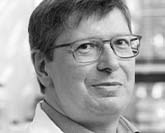
Inserm - CHR - Université de Lille
Luc Buée is a French scientist (Directeur de Recherche au CNRS - DRCE CNRS), Director of the Lille Neuroscience & Cognition Research Centre and Head of the Inserm laboratory «Alzheimer & Tauopathies» at the University of Lille, France. Located on the Lille hospital campus, his laboratory belongs to the Lille Centre of Excellence in Neurodegenerative disorders (LiCEND) and is also part of the LabEx DISTALZ (National consortium on Alzheimer's disease).
Luc Buée has been working on Alzheimer's disease and related disorders for more than thirty years. He began his work on the role of proteoglycans in Alzheimer's disease during his doctoral training at Mount Sinai Medical Center, New York. He made some of the pioneering neuropathological observations on microvasculature abnormalities in neurodegenerative disorders. He was involved in the initial biochemical characterization of tau aggregates in certain neurodegenerative disorders (barcode tauopathies). He then developed experimental models to better understand the role of post-translational modifications in tau aggregation and secretion. These experimental models are now widely used to evaluate therapeutic strategies for tauopathies (immunotherapy, small molecules, non-drug therapy...). With his team, he has also discovered numerous non-microtubular functions of the tau protein. He is currently working on the pathophysiological consequences of neurofibrillary degeneration and their links with amyloid pathology and neuroinflammation in Alzheimer's disease. His group has been/is also involved in different international consortia.
Luc Buée is also involved in different scientific advisory boards and operating committees (National committee of Universities, Neuroscience board (CNU69), Janssen Horizon, Rainwater Charitable Foundation). He is also the representative researcher elected by academia colleagues at the French Foundation Plan Alzheimer. He is the organizer of the Eurotau meetings.
He has received different awards: Prix Claude Pompidou for Alzheimer's disease research (2013), Grand Prix Spécial des Sciences par la société des Sciences, de l’Agriculture et des Arts de Lille (2014) and Prix Bernadette et Pierre DUBAN 2020 from Fondation pour la Recherche Médicale for Alzheimer's and related diseases.
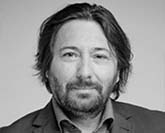
Karolinska Institutet. Sweden.
Angel Cedazo-Minguez is Vice-president for Strategic Inititatives and Scientific Relations at Sanofi and Professor in Molecular Neurogeriatrics at the Karolinska Institutet (Sweden).
He received a Ph.D. in Medicine from Karolinska Institutet (KI) in 2002, where he was named Vice Head (2008 to 2012) and Head (2012-14) of the Department of Neurobiology, Care Sciences and Society. Between 2006 and 2017 he co-directed the Center for Alzheimer Research at KI and the Swedish Brain Power, a national network of 60 Swedish centers of excellence in neurodegenerative disorders. He has acted as external advisor of several National and European research programs, including CIBERNED (Spain), INSERN (France), FP7 IDEA, ERA-NET and JPND (EU). From 2017 to 2022, he led the Neurodegeneration research at Sanofi while continuing being affiliated to KI.
Dr. Cedazo-Minguez has published more than 100 articles and has been the recipient of several awards and honors. His research at KI involves investigating the pathological mechanisms behind some known risk factors for Alzheimer's disease. Current projects are directed towards fundamental alterations in antioxidant systems and homeostatic dysregulations of cholesterol and glucose metabolisms.
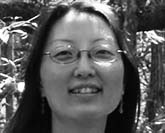
Standford University, California. USA
Lu Chen received a B.S. (1993) from the University of Science and Technology of China, and a Ph.D. (1998) from the University of Southern California. Chen was a postdoctoral fellow at the University of Southern California (1998-99) and the University of California San Francisco (1999-2002).
She started her independent career as an assistant professor in the Department of Molecular and Cell Biology at the University of California, Berkeley (2003-2010). She joined the faculty at Stanford University School of Medicine in 2011. She is currently a Professor in the Department of Neurosurgery and of the Department of Psychiatry and Behavioral Sciences at Stanford University School of Medicine.
She has been awarded with the NRSA Postdoc fellowship, NIH (2001); the Beckman Young Investigator Award, Beckman foundation (2003); the NARSAD Young Investigator Award, NARSAD (2005); the Packard Fellow in Science and Engineering, David and Lucile Packard Foundation (2005); the Keck Distinguished Young Scholar in Medical Research, W. M. Keck Foundation (2005) and the MacArthur Fellowship, MacArthur Foundation (2005)
The long-term goal of her research is to understand the cellular and molecular mechanisms that underlie synapse function during behavior in the developing and mature brain, and how synapse function is altered in developmental neuropsychiatric diseases. In this broad research area, she is specifically interested in the homeostatic regulation of synaptic strength, the functional impact of homeostatic plasticity on Hebbian plasticity, and how these interactions influence animals’ ability to learn and to remember. Her lab applies genetic, molecular, cellular and circuit approaches to investigate how the history of an animal’s behavioral experiences (e.g., enriched environment or stress) changes synaptic properties and their capacity for plasticity through regulation of gene expression and splicing, and how these changes at synaptic level contributes to memory engram formation at a network level.
Her research has been published in such academic journals as Nature, eLife, Neuron, the Journal of Neuroscience, and the Proceedings of the National Academy of Sciences USA.
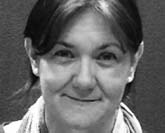
Universitat de Valencia
CIBERNED
Isabel Fariñas received her PhD in Biology from the Autonomous University of Barcelona with a thesis done at the Institute Cajal of the CSIC in Madrid. After a postdoctoral period (1993-1998) as a Fulbright and HFSPO fellow and later as a researcher at the University of California at San Francisco, she joined the University of Valencia where she is professor in Cell Biology and director of the Molecular Neurobiology Unit. Her entire scientific background falls within the field of neurobiology and her best contributions have come in two areas. Her postdoctoral studies contributed to establish the essential functions of the neurotrophic factors of the families of neurotrophins and GDNF. Her studies in genetically modified mice contributed to the mapping of trophic dependencies and of the functional relationships between factors and receptors, such as the promiscuity of neurotrophin-3 or the identification of c-ret as a GDNF receptor. Her studies as an independent researcher focus on the niche biology of neural stem cells (NSCs). Her group described the first "angiocrine" factor, the so-called PEDF, whose actions contributed to establishing that blood vessels are a key element of neurogenic niches. In addition, her group has contributed to establishing the concept of quiescence as an actively regulated state by identifying the actions of neurotrophin-3 as an angiocrine pro-quiescence factor, to uncover transcriptional functions of cell cycle regulatory molecules in the maintenance of NSCs or to define the role of cell adhesion in the regulation of their activation state, among others. She has been a member of the boards of the Spanish Society of Neuroscience, the Spanish Society of Gene and Cell Therapy, and the International Society of Differentiation and of the Spanish Developmental Biology Society and is now board member of the Spanish Society of Developmental Biology. Her group belongs to the Center for Biomedical Research in Network on Neurodegenerative Diseases (CIBERNED), the National Cell Therapy Network (TerCel), the Institute of Biotechnology and Biomedicine of the University of Valencia (BIOTECMED) and is Prometheus Group of Excellence of the Valencian Community. She was appointed member of the European Molecular Biology Organization (EMBO) in 2013 and chosen by the Fundación Botín-Banco Santander to be part of her science program to encourage technological transfer in 2014. She is currently president of the area of Biosciences and Biotechnology of the Agencia Estatal de Investigación and member of the scientific advisory board of the Fundación CIEN.
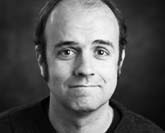
CNIO & Karolinska Institute
Oscar Fernandez-Capetillo (Bilbao, 1974) did his PhD in the University of The Basque Country working with mouse models of autoimmunity with Dr. Ana Zubiaga. For his postdoctoral stay he joined the group of André Nussenzweig, where he started to work on DNA repair and the role of histone H2AX. In 2005, he joined CNIO to lead the Genomic Instability Group where he has been ever since. One main focus of the lab was on exploring the role of replicative stress in cancer and ageing, for which the group combined cell biology, mouse models and drug development projects that were licensed to the Pharmaceutical Industry for clinical development as cancer therapies. More recently, the group is using their methods (e.g. chemical and genetic screens, and preclinical mouse models) to address challenges in other age-related pathologies such as neurodegeneration.
Oscar has been the recipient of numerous national and international awards, and selected for international networks of excellence such as EMBO or HHMI. Since 2015 he is the Vicedirector of CNIO, and a full professor at the Karolinska Institute in Sweden.
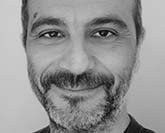
Barcelonaβeta Brain Research Center
Pasqual Maragall Foundation
I hold a PhD in Telecommunication Engineering and a Master's in Biomedical Engineering. My main field of research is the development of neuroimaging analytical techniques for the study of the brain. My interests are multidisciplinary my research has been performed in close collaboration with neurologists, psychiatrists, biologists, chemists, pharmacists, etc. Through the years, I have developed an extensive network of international collaborations both in academia and in the industry, with whom I frequently collaborate to jointly develop state-of-the-art technologies and biomarkers.
In the last decade, my research has been focused on studying the pathophysiological processes involved in the preclinical stages of Alzheimer’s disease (AD) to inform preventive interventions. Pathophysiological alterations with are specific to AD can already be detected many years before the onset of symptoms. This preclinical stage constitutes a window of opportunity for preventive interventions.
I have also been teaching courses on Medical Imaging at the public Pompeu Fabra University in the degrees of Biomedical Engineering and Human Biology. I have supervised 5 PhD I have also acted as supervisor in 3 postdoctoral researchers that have been awarded Juan de la Cierva fellowships (2 incorporación, 1 formación) and 1 Marie Skłodowska-Curie fellowship. I was awarded a Ramon y Cajal Fellowship in 2013 and, in 2019, received the I3 certificate of outstanding research trajectory by the Spanish Ministry of Science and Innovation.
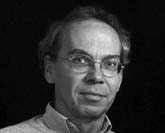
MRC Laboratory of Molecular Biology
University of Cambridge
Michel Goedert, who was born and educated in Luxembourg, obtained an MD degree from the University of Basel in 1980 and a PhD from the University of Cambridge in 1984. He has been a Programme Leader at the Medical Research Council Laboratory in Cambridge since 1988. Between 2003 and 2016, he was also Head (joint or sole) of the Laboratory’s Neurobiology Division. Michel has been an Honorary Professor in the Department of Clinical Neurosciences of Cambridge University since 2014.
For his work on the molecular mechanisms underlying neurodegenerative diseases, he received a number awards (shared or sole), including the Metropolitan Life Foundation Award for Medical Research in 1996, the Potamkin Prize for Pick’s, Alzheimer’s and Related Disorders from the American Academy of Neurology in 1998, the European Grand Prix from de Fondation pour la Recherche sur Alzheimer in 2014 and the Brain Prize from the Lundbeck Foundation in 2018.
Michel Goedert has been instrumental in the discovery of the importance of tau protein assembly for Alzheimer’s disease and related dementias. He also identified the protein alpha-synuclein as the major component of the abnormal filamentous inclusions of Parkinson’s disease, dementia with Lewy bodies and multiple system atrophy.
Amongst many other recognitions, he has been awarded with a Royal Medal for identifying and characterising assembled tau protein and alpha-synuclein and showing that they form the inclusions of Alzheimer’s and Parkinson’s diseases.
He is a member of the Royal Society of London and the U.K. Academy of Medical Sciences and he is an advisor in several research and scientific committees and boards.
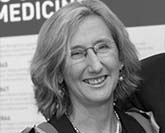
Trinity College Dublin
Orla Hardiman is one of only two full Professors of Neurology in Ireland. She is Head of the Academic Unit of Neurology at Trinity College Dublin and Consultant Neurologist at Beaumont Hospital, where she is Director of the National Amyotrophic Lateral Sclerosis (ALS ) service . The clinic provides direct clinical care for over 80% of Irish patients with ALS. She is the Director of the Irish ALS/MND Register, which has been in continuous operation since 1995 and is the longest running population based register of ALS/MND in the world. Hardiman was Academic Director of Trinity Biomedical Sciences Institute from 2015-18, and then took up the role as National Clinical Lead in Neurology for the Health Service Executive in early 2019. She leads a research group of over 45 individuals in Neurodegeneration, with particular focus on ALS and frontotemporal dementia. Her research group focuses on epidemiology, deep phenotyping, biomarker discovery, imaging and signal analysis and population genetics of ALS, and on early phase clinical trials. She is Co- Chair of the European Network for Cure of ALS (ENCALS), a senior member of the executive of the TRICALS Consortium and is Editor in Chief of the journal Amyotrophic Lateral Sclerosis and the Frontotemporal Degenerations. She is the recipient of a number of international awards including the AAN Sheila Essey Award in ALS Research, and the International ALS Alliance Forbes Norris Award. In 2018 she received a TCD Innovation Award for Societal Impact. She is one of a handful of practicing physicians to have been elected as members of scholarly Royal Irish Academy. She is the author of over 430 peer reviewed research articles and has raised over €20 million in research funds. Her research is funded by Science Foundation Ireland, the Health Research Board, The American Centre for Disease Control, The American ALS Association, the British MND Association the Irish MND Association, and the charity Research Motor Neuron.
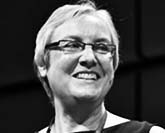
School of Medicine, Cardiff
Current post
Professor of Neuropsychiatric Genetics, Division of Psychological Medicine Clinical Neuroscience and MRC Centre for Neuropsychiatric Genetics and Genomics, School of Medicine, Cardiff University, Associate Professor of the UK Dementia Research Institute at Cardiff.
Education
BSc (hons) Biochemistry 1st class (1985): PhD (1990). Cardiff University.
Honours and awards
Aug 2022: Invited speaker, Hereditary Disease Foundation meeting, Boston USA
Nov 2021: Plenary speaker, Huntington’s Study Group
Editor, Special issue: DNA Repair and Somatic Repeat Expansion in Huntington’s Disease (2021)
Associate Editor Journal of Huntington’s disease (2021 - )
Member, Scientific Advisory Board LoQus23 Therapeutics (2019 - );
Member, Scientific Advisory Board Triplet Therapeutics: (2019 - );
Member (elected), Executive Committee of the European Huntington’s Disease Network (EHDN), 2014 – 2018 and 2018 – 2022;
Research Interests
I have a long-standing interest in neurodegenerative disease. My current research focuses on Huntington’s disease, where I have been following up the exciting findings from our genetic studies revealing modifiers of Huntington’s disease in people. These findings have refocused the HD research landscape so that alongside modulating HTT as a therapeutic target in HD, addressing the expanded CAG repeat in HTT and its propensity to expand over time has also become a key therapeutic target. I have been following up our genetic findings to reveal the genes and variants that alter CAG repeat expansion in cell and mouse models of HD. This is both in search of the underlying mechanisms of repeat expansion – relevant to many of the 40+ diseases caused by expanded repeats - and in order to define and de-risk novel targets, and find new treatments, in collaboration with industry. Earlier in my career I produced seminal findings in Alzheimer’s disease, highlighting the immune response as a key pathway modulating disease risk, and was one of the first researchers to note the key role of transcriptional dysregulation in HD pathogenesis.
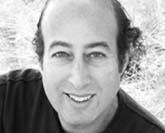
University of California, Santa Barbara
Kenneth S. Kosik is a physician scientist who completed a B.A. and M.A. in English literature from Case Western Reserve University in 1972 and an M.D. from the Medical College of Pennsylvania in 1976. He served as a resident in neurology at Tufts New England Medical Center and was Chief Resident there in 1980. From 1980 he held a series of academic appointments at the Harvard Medical School and achieved the rank of full professor there in 1996. He also held appointments at McLean Hospital, Brigham and Women's Hospital, the Massachusetts General Hospital and the Dana-Farber Cancer Institute. In 2004, Kosik became the Harriman Professor of Neuroscience Research and Co-Director of the Neuroscience Research Institute at the University of California, Santa Barbara.
Kosik’s work with early onset familial Alzheimer’s disease in Colombia was the basis for a novel prevention trial to treat Alzheimer’s disease. He was one of several groups that discovered Tau protein in the Alzheimer neurofibrillary tangle, followed up with many studies on the biology and pathobiology of Tau. The Kosik lab intends to create an intellectual setting conducive to the exploration of fundamental biological processes, particularly those related to the brain pathology and evolution. He is a director of the Tau Consortium. His publications cover synaptic plasticity, stem cells, brain organoid physiology, synapse evolution, and the biology of Alzheimer’s disease. In 2021, he received the Potamkin Prize for Research in Pick’s, Alzheimer’s and Related Diseases (2021), and is a fellow of the American Association for the Advancement of Science (AAAS).
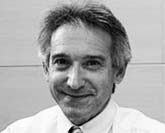
CIBERNED-Hospital de la Santa Creu i Sant Pau
Dr Jaime Kulisevsky is Director of the Movement Disorders Unit at Sant’s Pau Hospital, the Autonomous University of Barcelona, where is he is also Co-Director of the functional neurosurgery programme for Parkinson’s disease, Coordinator of the postgraduate magister degree in neuropsychological diagnosis and rehabilitation (Autonomous University of Barcelona) and Full Professor of Neurology at the Autonomous University of Barcelona (UAB). He has been engaged in neurological research for several years and is currently Principal Investigator at the Biomedical Network Research Centre for Neurodegenerative Diseases (Spain) as well as being involved in a wide range of clinical and pharmacological studies as Principal Investigator. His translational team of clinical and basic research focuses in the treatment of movement disorders such Parkinson’s disease, Essential tremor, Parkinsonisms and Huntington’s disease as well as other basal ganglia-related pathologies, with special interest in the study of Cognitive impairment and Behavioural dysfunctions and therapeutic options in these diseases. The work of his group involves clinical research with neurophysiological techniques, structural and functional neuroimaging, and association of genetic variations. Dr. Kulisevsky is an active member of the International Parkinson’s disease and Movement Disorder Society (MDS), where he took part in the international task force for developing rating scales for Parkinson’s disease and is presently Officer at the Executive Committee of the European MDS section (MDS-ES). He is also at the Executive Committee of the European Huntington’s Disease Network (EHDN) and Chair of the Cognitive Phenotype Working Group of the EHDN. He is on the editorial board of Neurologia (the official journal of the Spanish Neurological Society) and editor of movement disorders of Revista de Neurología (Spain) and Frontiers in Neurology. Dr. Kulisevsky has published clinical guidelines on the treatment of Parkinson’s disease and more than 250 scientific papers in peer-reviewed journals. He is a frequent speaker at national and international conferences and meetings and participates in many advisory boards with industry sponsors. Presently he is Vice-Dean of the Faculty of Medicine at the Autonomous University of Barcelona.

Centro de Biología Molecular “Severo Ochoa” (CSIC-UAM)
CIBERNED
I received my Ph.D. from the UCM in 2009 for my research on the effects of physical exercise on adult hippocampal neurogenesis (AHN). In 2010, I joined Prof. Jesús Ávila’s lab at the Center for Molecular Biology “Severo Ochoa” (CBMSO) as a postdoctoral fellow. During that period, I was awarded two postdoctoral fellowships (JAEDoc-2009 and Juan de la Cierva-2012) and investigated AHN alterations in the brains of murine models of Alzheimer’s disease (AD). In 2015, I was awarded a prestigious international “Japan Society for the Promotion of Science (JSPS) Postdoctoral fellowship for foreign researchers”, one of the most competitive research programs in that country. Supported by this fellowship, I undertook a postdoctoral research period at the University of Tsukuba (Japan) (Dr. Hideaki Soya´s lab).
In 2016, I set up my independent laboratory, which focuses on the basic biology and neuroprotective potential of AHN for the treatment of various diseases and the year later I was granted a Ramón y Cajal contract. In September 2020, I was awarded a tenured researcher position as Científico Titular at the CBMSO.
Since the establishment of my own group (“Adult neurogenesis and neurodegenerative diseases”), I have received four prestigious international research grants as principal investigator (an ERC Consolidator Grant (ERC-CoG-2020), three from the Alzheimer´s Association (USA), and one from the Association for Frontotemporal Degeneration (USA)), and two grants from the Spanish Ministry of Economy and Competitiveness. I have published 60 papers, of which I am the last author in 17. I have an h-index of 35 and an i10-index of 51. My studies accumulate more than 4500 citations. Our recent studies have been published in high-impact journals such as SCIENCE, Nature Medicine, Nature protocols, EMBO J, and others. Our work has attracted significant interest from the the media (The Scientist, The Scientific American, The Guardian, Le Monde, Il Corriere della sera, El Mundo, El País, La Razón, and ABC). Throughout my career, I have obtained three National Research Awards (CIBERNED Young Investigator Award (2014); “Miguel Catalán” Young Investigator Award (2019); and “Young Female Talent Award of the Spanish Royal Academy of Sciences (2019)). I am full member of the Spanish Young Academy (2021-2026).
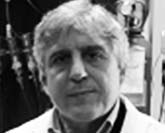
CIBERNED-Instituto de Biomedicina de Sevilla
José López-Barneo is a professor of Medical Physiology and Biophysics at the University of Seville Medical School and Research Director of the University Hospital “Virgen del Rocío”. He has been Department Chairman and founding Director of the Institute of Biomedicine of Seville and the Spanish Network of Excellence for Research on Neurodegenerative Diseases (CIBERNED). He did postdoctoral stays at the CNRS (Paris), University of Pennsylvania Medical School (Philadelphia) and New York University Medical Center (New York), and has been a visiting professor at Stanford University School of Medicine (Palo Alto, Ca) and Columbia University (New York). Dr. López-Barneo main research interests are related to the study of the mechanisms of acute oxygen sensing in mammals, specifically by the carotid body and other peripheral chemoreceptor organs, as well as the cellular adaptations to hypoxia. He also works on cell therapy in Parkinson disease and the molecular bases of neuroprotection and neurodegeneration of central catecholaminergic neurons. Dr. López-Barneo has served as an editor in the Journal of Physiology, Pflügers Archiv/European Journal of Physiology, Physiology, and Physiological Reviews. Dr. López-Barneo has been past President of the Spanish Neuroscience Association and the Spanish Society for Gene and Cell Therapy. He is a member of the Academia Europea and the European Molecular Biology Organization. For over 35 years Dr. López-Barneo’s laboratory has been supported by grants from the Spanish Government, the Juan March and Botín Foundations, European Union Framework Programs and the European Research Council.

CIBERNED-Centro de Biología Molecular “Severo Ochoa”, Madrid
José Javier Lucas (San Javier-Murcia, 1965) is Research Professor at the Severo Ochoa-Molecular Biology Center (CBMSO-CSIC & CIBERNED) in Madrid. José studied Biology at the Autonomous University of Madrid (UAM) and obtained his Ph.D. in 1993 for his work on the molecular basis of pain performed at Cajal Institute (Madrid). In his postdoctoral period at Columbia University in New York (1993-1997) he studied the neurobiology of addiction. Since his return to Spain in 1998 he works at CBMSO on the molecular basis of neurodegenerative diseases (especially Huntington and Alzheimer's) and psychiatric (such as schizophrenia or autism).
The most important milestones of his research are: the demonstration by the use of transgenic mouse models that neurodegenerative diseases are reversible and the discovery of the key role of RNA-binding proteins and altered mRNA processing in neurodegenerative diseases and autism.
Author of six patents and more than 120 publications in international journals including the most prestigious such as Nature, Cell, Nature Medicine, Science Translational Medicine, Neuron, Brain, JCI, EMBO J or PNAS. He has received various scientific awards and is member of the Royal National Academy of Pharmacy (RANF) and the Academia Europaea.
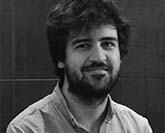
Champalimaud Foundation, Lisbon
Marcelo Mendonça graduated in Medicine at Universidade do Porto, Portugal and trained as a Neurologist in Lisbon and in Movement Disorders in Barcelona and New York City. During his PhD, under the supervision of Rui Costa (Champalimaud Foundation / Columbia University), Marcelo used state-of-art physiology and behavioral tools to dissect the function of dopaminergic neurons during lateralized forelimb movements.
Currently he is a Neurologist and Research fellow at the Neuropsychiatry Unit and Neural Circuits Dysfunction Lab at the Champalimaud Foundation. His research focuses on basic and translational aspects of motor circuits dysfunction across movement disorders.
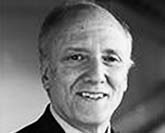
University of California at San Francisco
Bruce L. Miller, MD, holds the A.W. and Mary Margaret Clausen Distinguished Professorship in Neurology at the University of California, San Francisco, directs the UCSF Memory and Aging Center and is a director of the Global Brain Health Institute. He is the principal investigator of the NIH-sponsored Alzheimer’s Disease Research Center and program project grant on frontotemporal dementia. In addition, he helps lead the Tau Consortium and The Bluefield Foundation, precision medicine collaborations focused on developing treatments for tauopathies and progranulin-mediated forms of frontotemporal dementia.
Miller is a behavioral neurologist who studies the underlying mechanisms of neurocognitive disorders and is a world-renowned expert in the diagnosis and management of dementia. Until recently, most cases of dementia were classified as Alzheimer’s disease with little awareness of the importance of non-Alzheimer dementias. Miller’s description of changes in behavior, language and emotion in the setting of aging have improved the separation of various neurodegenerative diseases from one another, in particular Alzheimer’s disease from frontotemporal dementia. To support people after diagnosis, Miller has pioneered groundbreaking changes in the provision of care coordination for patients with dementia and their caregivers. His ongoing work includes overseeing a healthy aging program and an artist in residence program, both of which emphasize positive aspects of aging.
Miller has been featured in Fortune Magazine, The New York Times, 60 Minutes and the PBS Newshour. He has authored more than 1000 publications and written The Human Frontal Lobes, The Behavioral Neurology of Dementia and Frontotemporal Dementia. Finding the Right Words, a book on Alzheimer’s disease from the perspective of a daughter (Atlantic Fellow for Equity in Brain Health Cynthia Weinstein, PhD) and neuroscientist (Miller), will be published in the fall of 2021. He has received many awards including the Potamkin Award from the American Academy of Neurology, the Elliot Royer Award from the San Francisco Neurological community, the Robert A. Fishman Award and Lecture, and the UCSF Lifetime Achievement in Mentoring Award. He is an elected member of the National Academy of Medicine.
Miller’s extensive knowledge in clinical diagnosis, disease pathology, and brain-behavior relationships make him a widely sought-after teacher and mentor. He founded the Behavioral Neurology Fellowship at UCSF, oversees visits of more than 50 foreign scholars every year, and co-directs the Global Brain Health Institute, a training program for global leaders in brain health to reduce the scale and impact of dementia around the world. These international collaborations have fostered the development of new prevention and therapeutic approaches and have pushed researchers worldwide toward a more precise understanding of frontotemporal dementia and other neurodegenerative diseases.
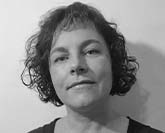
Universitat de Barcelona
CIBERNED
Marta Pascual graduated in Biological Sciences at the Universitat de Barcelona (UB) in 1993. She got her PhD in Biological Sciences also from the University of Barcelona. During her PhD studies, she investigated the expression of neurotrophic factors in the hippocampal interneurons and their relationship with the GABAergic septohippocampal synapses. She also analyzed the role of Reelin and Semaphorins in the development and maturation of the GABAergic septohippocampal connection.
Marta Pascual is an Associate Professor at the University of Barcelona. She is integrated in the consolidated group “Neurobiology of Development and Regeneration”, recognized by the Generalitat de Catalunya. She is member of the Institute of Neurosciences (UB), which was recently awarded with the María de Maeztu Unit of Excellence Program. Since 2008, she leads her own research group.
The research interest of Dr. Pascual’s group is focused on the relevance of the GABAergic system in Alzheimer’s disease. Her group has evidenced an important decrease in GABAergic septohippocampal innervation on hippocampal GABAergic interneurons as a result of amyloid-β (J20 mice, Rubio et al., FASEB J. 2012) and hyperphosphorylated Tau accumulation (VLW mice, Soler et al., Neurobiol Aging, 2017), highlighting the GABAergic system as a new therapeutic target for Alzheimer’s disease. Moreover, they have demonstrated that phosphorylated Tau is present in the cell bodies of hippocampal interneurons in physiological and Alzheimer’s disease conditions, suggesting a new role of Tau in GABAergic neurons (Dávila-Bouziguet et al. Neurobiol. Disease 2019).
Recently, Dr. Pascual’s group has described a unique mouse model, the J20/VLW mouse, that despite accumulating amyloid-β and hyperphosphorylated Tau, exhibits a preserved GABAergic septohippocampal pathway, hippocampal rhythmic activity and, interestingly, conserved cognition, as opposed to J20 and VLW single transgenics, which show significant alterations in these parameters. These data support the J20/VLW mice as a novel and unique tool to explore the mechanisms driving cognitive resilience to Alzheimer’s disease pathology (Dávila-Bouziguet et al. Brain 2021).

Champalimaud Foundation
Joseph Paton received his undergraduate degree in biology from Tufts University in 2000. In 2008, he received his Ph.D. with distinction from Columbia University in Neurobiology and Behavior, and shortly thereafter joined the Champalimaud Neuroscience Programme, where he was a fellow from 2008 to 2012. He is currently a Principal Investigator and Director of the Champalimaud Neuroscience Programme at the Champalimaud Foundation in Lisbon, Portugal. He is an alumnus of the Simons Foundation on the Global Brain, A Howard Hughes Medical Institute International Research Scholar, and a current holder of a consolidator grant form the European Research Council. His laboratory focuses on the neural mechanisms of learning, decision making, action selection and timing, and is particularly centered on the role that the basal ganglia play in these processes. Experimental approaches employed in his laboratory include behavioral, electrophysiological, molecular, imaging, and computational techniques in rodent animal model organisms.
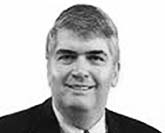
University of Texas
Dr. George Perry is a neuroscientist and Professor of Neuroscience, Developmental and Regenerative Biology at the University of Texas at San Antonio. Perry is recognized in the field of Alzheimer's disease research particularly for his work on oxidative stress.
Dr. Perry’s studies are focused on the mechanism of formation and physiological consequences of the cytopathology of Alzheimer disease. The lab has shown that oxidative damage is the initial cytopathology in Alzheimer disease. They are working to determine the sequence of events leading to neuronal oxidative damage and the source of the increased oxygen radicals. Current studies focus on the:
1. mechanism for RNA-based redox metal binding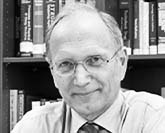
Medical University Innsbruck
Professor Werner Poewe is emeritus Professor of Neurology in the Department of Neurology at the Medical University of Innsbruck in Austria. He completed a residency in clinical neurology and psychiatry at the University of Innsbruck and then a British Council research fellowship at University College and Middlesex Hospital Medical School in London. He previously served as a senior lecturer in the Department of Neurology at the University of Innsbruck and as a professor of neurology and acting director of the Department of Neurology at the Virchow Hospital of the Free University of Berlin in Germany before becoming director of the Department of Neurology at the Medical University of Innsbruck in 1995 – a position he held until 2019.
Professor Poewe has served as president of the International Parkinson and Movement Disorder Society (MDS), chair of the MDS European Section, president of the Austrian Society of Neurology, and president of the Austrian Parkinson’s Disease Society. He is a corresponding member of the American Neurological Association and French Neurological Society and an honorary member of the German Neurological Society, Japanese Neurological Society, and MDS. He has received the Walther Birkmayer Prize from the Austrian Parkinson’s Disease Society, the Dingebauer Prize from the German Neurological Society, and the Research Excellence Award from the Medical University and Leopold-Franzens University of Innsbruck.
Professor Poewe’s main research interests are in the field of Parkinson’s disease and movement disorders, with particular emphasis on the diagnosis, natural history and clinical trials in the fields of Parkinson’s disease and atypical parkinsonism. He has authored or co-authored more than 800 original articles and reviews in the field of movement disorders with a total of more than 88.000 citations and an h-index of 145. Professor Poewe is listed among top 1% of ‚highly cited researchers‘ in neuroscience (Clarivate Web of Science 2021).
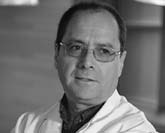
Fundación CIEN
Alberto Rábano, Dr med. Dr phil. – Neuropathologist and basic neuroscientist, working since 2009 at the CIEN Foundation as Head of Neuropathology and Scientific Director of the CIEN Tissue Bank. Previously, extensive work as Head of Pathology and Research Director of a University Hospital in Madrid (Fundación Hospital Alcorcón), taking part during this period (1997-2009) and therafter in the development of several brain banks in Spain. During the “mad cow” crisis (2000-2009) he was in charge of the neuropathological diagnosis of prion diseases in several regions of Spain, including Madrid, and was a member of several governmental committees dealing with prion disease surveillance and biosafety issues. Past member of several research ethical committees including the Ethical Advisory Board of the Human Brain Project (2014 – 2018) and of the Steering Committee of the Spanish National Biobank Network (2014 – 2020), and past President of the Spanish Neuropathology Club (2017 – 2021). He has received several media and scientific awards for the promotion of brain donation and for research in Alzheimer’s disease (Spanish Society of Neurology Award, 2017). His research interests are focused on diagnostic and molecular neuropathology of neurodegenerative diseases, biospecimen science and biobanking, and ethical issues related to tissue donation for research. Since 2014 he is principal investigator of the core research program at the Alzheimer’s Center Queen Sofía Foundation (Vallecas Alzheimer’s Study), in Madrid, based on a cohort of over 500 institutionalized patients with moderate to advanced dementia with periodic follow-up, biochemistry, MR and brain donation. In recent years, he took an active part in studies that lead to the discovery of brain fungal colonization in several neurodegenerative diseases and in breakthrough research in adult hippocampal neurogenesis. He organized the Ist and 2nd Symposia on Brain Banks in Spain (2018, 2019). He is author or co-author of 155 original scientific papers, h-index 46, and 6 book chapters.
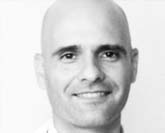
Fundación CIEN
Dr. Sánchez-Juan is the Scientific Director of the Research Center for Neurological Diseases Foundation (CIEN) in Madrid.
Neurologist expert in dementias. Until August 2021 he has directed the Cognitive Impairment Unit of the Marqués de Valdecilla University Hospital, Santander, where he has also held the scientific direction of the Valdecilla Biobank. He is co-IP of CIBERNED and a member of the executive committee of the Spanish consortium of genetics in dementias, in addition to having multiple international and national publications that accumulate more than 8700 citations.
He completed his specialty at the Marqués de Valdecilla University Hospital. After his residency, he was awarded the Wenceslao López Albo research grant. He spent a year as a researcher in Edinburgh at the National Creutzfeldt Jakob Surveillance Unit in the United Kingdom. Subsequently, he graduated in Genetic Epidemiology at the Erasmus MC University (Rotterdam, The Netherlands), where he did his MSc and PhD. While in Rotterdam, he served as Prion Disease Surveillance Coordinator in the Netherlands and gained valuable experience in the field of epidemiology working on the prestigious Rotterdam Study cohort. In 2011 he completed his clinical training as an expert in dementia and behavioral neurology at The Memory and Aging Center at UCSF in San Francisco. Dr. Sánchez-Juan has been the founder and responsible until August 2021 of the Cognitive Impairment Unit at HUMV, as well as scientific director of the Valdecilla Biobank. Since August 2021 he is the scientific director of the CIEN Foundation and the co-principal investigator of CIBERNED. He is also a member of the executive committee of the Spanish Genetic Consortium of Dementias.
Dr. Sanchez-Juan is the author of more than 150 international publications indexed in Medline. Dr. Sánchez-Juan's main scientific interest is neurodegenerative diseases, particularly prion diseases and Alzheimer's disease. His publications include the first authorship in two genome-wide association studies on prion disease. He is also the first or principal author of some seminal and highly cited papers in the field of prion disease biomarkers and is the lead author of the current clinical diagnostic criteria for these diseases.
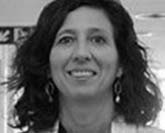
Hospital Clinic de Barcelona-IDIBAPS
I completed my training as a neurologist at the Hospital Clínic de Barcelona (2000) and my PhD degree on Biopathology in Medicine at the University of Barcelona (2003). After my PhD, I obtained a Rio Hortega fellowship (Instituto de Salud Carlos III, Spanish Ministry of Health) in Behavioural neurology at the Institut d’Investigacions Biomèdiques August Pi I Sunyer, Barcelona. During my fellowship, I accomplished a short-term postdoctoral scholarship at the Memory and Aging Center- University of California San Francisco, directed by Dr. Bruce Miller (2006). Back in Barcelona, I was hired as neurologist at the Alzheimer’s Disease and other Cognitive Disorders (ADCD) unit, Hospital Clínic de Barcelona (2006-). In 2018, I became the Group Leader of the Alzheimer’s disease and other cognitive disorders group at the IDIBAPS (https://www.clinicbarcelona.org/en/idibaps/research-areas/clinical-and-experimental-neuroscience/alzheimers-disease-and-other-cognitive-disorders) and Associate professor at the University of Barcelona. Currently, I am the Head of the Neurology Service at the Hospital Clínic de Barcelona. My research focuses on the use of different type of biomarkers (neuroimaging techniques, biochemical and genetic biomarkers) for the early and accurate diagnosis and prognosis/monitoring of neurodegenerative dementia, especially in early-onset and rare forms of dementia, as autosomal dominant Alzheimer’s disease, frontotemporal dementia and prion diseases.
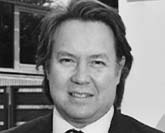
Fundación CIEN
Bryan Strange completed the M.B.-Ph.D. programme at University College London (UK) in 2004. His Ph.D., conducted at the Wellcome Department of Cognitive Neurology, Institute of Neurology, London, under the supervision of Ray Dolan and Karl Friston, argued for a functional dissociation between anterior and posterior hippocampus in humans. Subsequently, alongside clinical work in general medicine and neurology, he continued to study memory in humans, with particular focus on the effects of emotion on memory formation. He started his own laboratory in 2011, the Laboratory for Clinical Neuroscience, CTB, Universidad Politécnica de Madrid and in 2014 he began a collaboration with the Reina Sofia Foundation Centre for Alzheimer's Research, Madrid, Spain. His laboratory employs a multi-modal approach combining functional brain imaging techniques with patient lesion data, pharmacology, genetics and human intracranial recordings to study human medial temporal lobe functions. In 2014 he published a new model of hippocampal function, alongside a winner of the Nobel Prize in Medicine from the same year. In 2018 he was awarded a European Research Council Consolidator grant to characterise human subcortico-cortical neuronal circuit dynamics associated with enhanced episodic memory for salient stimuli. In 2021, he led a successful application for an infrastructure grant from the Spanish science ministry to fund the acquisition of an optically-pumped magnetoencephalography system (1.24 million euros).

Avram Goldstein Chair, Professor of Molecular and Cellular Physiology
Investigator of the Howard Hughes Medical Institute,
Stanford University School of Medicine, Stanford CA
Thomas Christian Südhof was born in Göttingen in 1955, and obtained his M.D. and doctoral degrees from the University of Göttingen in 1982. He performed his doctoral thesis work at the Max-Planck-Institut für biophysikalische Chemie in Göttingen with Prof. Victor P. Whittaker on the biophysical structure of secretory granules, and his internship in the University of Göttingen Hospitals from 1981 to 1982. From 1983-1986, Südhof trained as a postdoctoral fellow with Drs. Mike Brown and Joe Goldstein at UT Southwestern in Dallas, TX, and elucidated the structure, expression and cholesterol-dependent regulation of the LDL receptor gene. Subsequently, Südhof served on the faculty of UT Southwestern in Dallas until 2008, where Südhof among others served as the founding chair of the Department of Neuroscience. In 2008, Südhof moved to Stanford University. He currently holds the position of Avram Goldstein Professor in the School of Medicine, and serves as a Professor of Molecular & Cellular Physiology, Neurosurgery, Neurology, and Psychiatry. In addition, Südhof has been an Investigator of the Howard Hughes Medical Institute since 1986. Südhof is a member of the National Academy of Sciences, the Institute of Medicine, the Royal Society of the UK, Deutsche Akademie der Naturforscher Leopoldina, and the American Academy of Arts and Sciences. Südhof is the recipient of several awards, including the Alden Spencer Award (1993), the National Academy of Sciences Award in Molecular Biology (1997), the Bristol-Myers Award in Neuroscience (2004), the Passano Award (2008), the Kavli Award in Neuroscience (2010), the Lasker-deBakey Medical Basic Research Award (2013), and the Nobel Prize in Physiology or Medicine (2013). Südhof lives with his wife Dr. Lu Chen, who is also a professor at Stanford University, and their three young children in Menlo Park, CA.
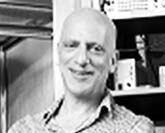
New York State Psychiatric Institute
Dave Sulzer is a professor of Psychiatry, Neurology, Pharmacology, and at the School of the Arts at Columbia University and New York State Psychiatric Institute. He received a PhD in biology from Columbia University. His lab has published over 250 studies on synaptic function, particularly of the basal ganglia and dopamine systems, and neuroimmunology, in normal and diseased states that are cited over 45,000 times (h-index 95). He is the founder of the Dopamine Society, the Gordon Conference on Parkinson’s Disease, and the journal Nature Parkinson’s Disease. He has received awards from the McKnight, Simons, Helmsley, NARSAD, Huntington’s, and Aaron Diamond Foundations and the Universities of Jerusalem, Minnesota, University College London, and national science foundations of Israel, Austria, Portugal and given named lectureships at the National Institutes of Health, Harvard, Yale, UCSF, Emory, UC Irvine, and the Vatican. He has trained 21 graduate students and 31 postdocs of which 8 are current, and his students and postdocs have received Fulbright, Marshall, and Regeneron awards for their work in the lab: past trainees are current professors at Columbia, Rutgers, Cornell, Yale, Lund, Pittsburgh, Jefferson, Tufts, Emory, Karolinska, Ecole Normale Superieure, and NYU, while others run pharmaceutical and biotech companies and one is the science editor at the Wall Street Journal.
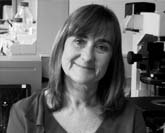
PhD - Instituto de Investigaciones Biomédicas, “Alberto Sols” CSIC-UAM, CIBERNED
Teresa Iglesias is a Scientist from the Spanish Research Council (CSIC) and Honorary Professor of the Biochemistry Department at the Medical School of Madrid Autonomous University (UAM). Sheis head of the group “Novel Targets in Neurodegeneration and Neuroprotection” at “Alberto Sols” Biomedical Research Institute (CSIC-‐UAM). Her laboratory is also part of CIBERNED (Network Center for Biomedical Research in Neurodegenerative Diseases, ISCIII). She is also member of several Advisory Panels and Scientific Committees. She obtained her PhD at the Complutense University Medical School, in Madrid, investigating the effects of stress in the central nervous system control of depression and hypertension. She was then involved in the identification of genes contributing to neurological deficiencies in hypothyrodism. Later she moved to the Imperial Cancer Research Fund / Cancer Research UK in London, where she started working on Protein Kinase D (PKD). She is an expert in neurosignalling and has been studying PKD neuronal functions for more than 20 years, having identified and cloned its first substrate, Kidins220 (Kinase D interacting Substrate of 220 kDa). Her group investigates now the role of PKD and Kidins220 in the molecular mechanisms involved in neuronal death in acute and chronic neurodegeneration, in order to design neuroprotection strategies useful for a broad range of neurodegenerative diseases.
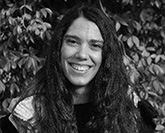
Centro de Biología Molecular “Severo Ochoa” (CSIC-UAM)
CIBERNED
I obtained a B.Sc in Biochemistry and a M.Sc in Neuroscience from the Autónoma University of Madrid (UAM). Throughout these academic years, I acquired a profound knowledge about brain function in health and disease, and I became interested in the molecular mechanisms underlying neurodegenerative diseases. Between 2014 and 2016, I had the opportunity to participate in a research about Alzheimer´s disease. Being aware of the possibility to contribute for a better understanding of the disease, I decided to pursue a PhD under the supervision of Dr. María Llorens-Martín at the Center for Molecular Biology “Severo Ochoa” (CBMSO). I was awarded a FPI-UAM predoctoral fellowship to pursue my PhD in the field of adult hippocampal neurogenesis (AHN) and neurodegenerative diseases. I am involved in the research on human AHN and hippocampal neurogenic niche. We have studied AHN in neurologically healthy control subjects and patients with Alzheimer’s disease, amyotrophic lateral sclerosis, Huntington’s disease, dementia with Lewy body, Parkinson’s diseases, and frontotemporal dementia, as well as in distinct mouse models of neurodegenerative diseases.
Since I started my PhD I have participated in 12 publications, 4 of them as a first or co-first author. Some of these studies have been published in high-impact journals such as Science, Nature Medicine, Nature protocols, and the Journal of Neuroscience. Furthermore, I have participated in numerous research projects and grants, including an ERC consolidator Grant 2020, an Alzheimer´s Association Research Grant, and projects funded by the Spanish Ministry of Economy and Competitiveness (PI: María Llorens-Martín). In addition, I had the opportunity to attend some of the most prestigious National and International Congresses, participating in them with poster or oral communications.

CIBERNED-Hospital Clinic de Barcelona
Eduardo Tolosa obtained his MD degree from the University of Barcelona and received his neurological training at the University of Minnesota in Minneapolis. He is a founding member and past President of the Movement Disorder Society. He is the founder of the University of Barcelona Brain Bank which he directed during 15 years. He is also past President of the Spanish and of the European Neurological Society. He is Honorary member of several medical societies such as the french, british and japanese Neurological societies. He is the recipient of the American Academy of Neurology 2014 Movement Disorders Research Award.
Prof. Tolosa is currently a member of the Executive Committee of CIBERNED (Centro de Investigacion en Red de Enfermedades Neurodegenerativas) at the Instituto de Salud Carlos III and Emeritus Professor at the University of Barcelona and IDIBAPS (Institut de Investigacio Biomedical Pi i Sunyer).
Professor Tolosa’s research interests are in movement disorders. He was involved in pioneering studies defining the mechanisms underlying levodopa-related motor fluctuations and the role of DAT SPECT in the diagnosis of Parkinson disease and his team has been among the first in Europe to evaluate the efficacy of novel therapeutic strategies for Parkinson’s disease, such as subthalamic nucleus stimulation, subcutaneous dopamine agonist infusions and intraduodenal infusions of levodopa. His main research is currently focused on the prodromal phase of Parkinson disease in both, idiopathic and genetic forms, and the study of tissue biomarkers in these preclinical stages.
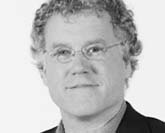
UMC Utrech
Leonard van den Berg did a fellowship at the Neurological Institute at Columbia University in New York and obtained his PhD degree in 1995 in Utrecht. He has been professor of Experimental Neurology since 2005 and leads a research group focused on translational research into ALS and other diseases of motor neurons. His research has been focused on the search for effective treatment for patients with motor neuron diseases and motor neuropathies by delineating the biological and molecular pathways that initiate and/or drive motor neuron degeneration. These efforts are based on clinical, lifestyle, environmental,genetic and imaging data obtained from large population-based case–control studies. Part of the research activity has been focused on characterizing the phenotype, diagnosis, pathology and treatment options for multifocal motor neuropathy, which is an important treatable ALS mimic. He is principal investigator of the largest, prospective population-based case-control study in ALS (PAN) to provide class I level of evidence of both environmental/lifestyle and genetic factors that determine risk and outcome of ALS and related motor neuron disorders. His research group has strong bioinformatic expertise in genome-wide association studies, copy number variation, gene expression pathways and other systems biology approaches. He is founder and director of The Netherlands ALS Center, which aims to improve the diagnosis, treatment/care and scientific research for ALS in The Netherlands. He promotes international collaborations on ALS research as chairman of the European Network to find the Cure for ALS (ENCALS)) and as coordinator of awarded EU grants (FP7 Euro-MOTOR (systems biology), JPND SOPHIA (biomarkers)).He promotes international collaborations on ALS research as chairman of the European Network for the Cure of ALS (ENCALS)), as coordinator of awarded EU grants (FP7 Euro-MOTOR(systems biology), JPND SOPHIA (biomarkers)) and as initiator of the worldwide ALS genetics research Project MinE.
Research line
Neuromuscular Disease, Motor Neuron Disease
Side Activities
Chair section Motor Neuron Diseases, European Reference Network - EURO-NMD
Chair executive board, European Network for the Cure of ALS (ENCCALS)
Director, Netherlands Neuromuscular Centre
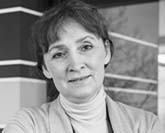
Department of Neurology
University Medical Center Göttingen
Germany
Degrees
1993 Medical degree, Medical School, Georg-August University of Göttingen
2001 Speciality qualification, Dept. of Neurology, Georg-August University of Göttingen
2001 Professorial qualification, Dept. of Neurology, Georg-August University of Göttingen
Major previous appointments
since 2001 Head of the dementia and prion research group at Dept. of Neurology, Georg-August University of Göttingen
since 2005 Professor of Neurodegenerative Diseases
since 2006 Head of Specialist Outpatient Clinic for Neurodegenerative Diseases
since 2007 Head of Neurochemistry Laboratory at Dept of Neurology, Georg-August University of Göttingen
since 2012 Head of the Clinical Dementia Center, Dept. of Neurology, Georg-August University of Göttingen
Activities in the Scientific Community / Professional Memberships
since 2000 DGN (Deutsche Gesellschaft für Neurologie)
since 2007 DGLN (Deutsche Gesellschaft für Liquordiagnostik in der Neurologie)
Honors and Awards
2001 Dorothea Erxleben Award
Her main research interests include genomics leading to proteomics and interactomics based techniques within deeper understanding of molecular mechanisms and post-translational modifications by regulating the function and translocation of proteins involved in Alzheimer’s, Parkinson’s, degenerative dementia, Creutzfeldt–Jakob disease (CJD) diseases .

Instituto de Biomedicina de Sevilla, IBiS
Hosp. Univ. Virgen del Rocío/CSIC/Universidad de Sevilla
CIBERNED
Rafael Fernández-Chacón is Professor of Physiology, Director of the Institute of Biomedicine of Seville (IBiS) and CIBERNED Investigator. He obtained his M.D. (1990) and Ph.D. degrees (1995) from the University of Seville. He performed his doctoral thesis work at the Department of Medical Physiology and Biophysics with Prof. Guillermo Alvarez de Toledo on the biophysical aspects of exocytosis in mast cells, studying the release of transmitter through the transient opening of the fusion pore (kiss and run). From 1995 to 2001, Fernández-Chacón trained as postdoctoral fellow with Prof. Thomas C. Südhof at the University of Texas Southwestern Medical Center and Howard Hughes Medical Institute in Dallas and, during the end of that period, he also worked with Dr. Christian Rosenmund at the Max-Planck Institute for Biophysical Chemistry in Göttingen. As a postdoct, Fernández-Chacón worked on the molecular mechanisms of calcium-dependent neurotransmitter release, investigating the role of synaptic vesicle proteins such as synaptotagmin as calcium-sensor for exocytosis. In 2002, Fernández-Chacón started his independent group at the University of Seville. Using multidisciplinary approaches, his group investigates the function and dysfunction of the synaptic vesicle cycle in genetically modified mice with a major focus in the study of the molecular mechanisms underlying the maintenance of nerve terminals and neurodegeneration in humans.
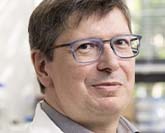
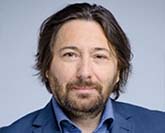
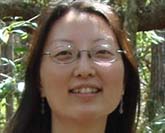
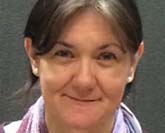
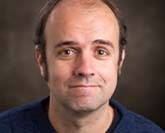
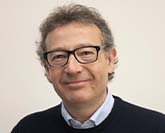
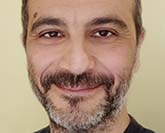
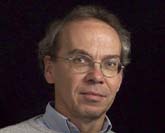
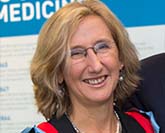
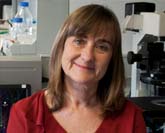
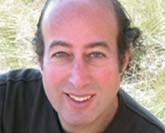
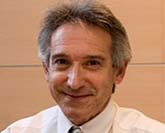
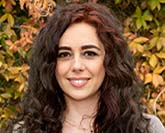
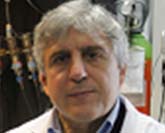
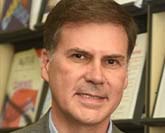
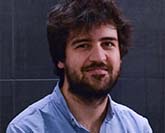
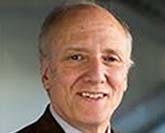
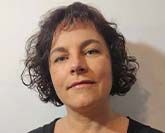

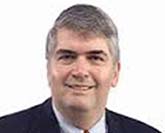
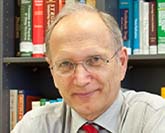
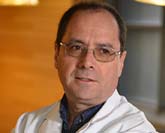
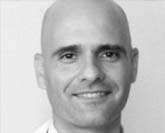
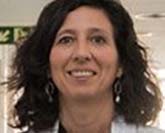
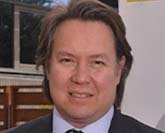
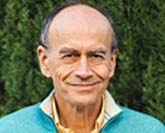
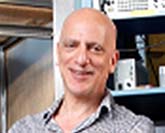
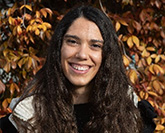
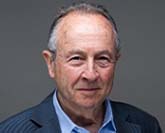
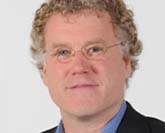
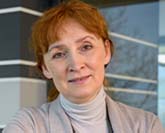
The form has been sent successfully.
Thank you
Fundación CIEN - CIBERNED
Centro Alzheimer Fundación Reina Sofía.
C/ Valderrebollo, 5. 28031 Madrid
+34 91 385 22 00




